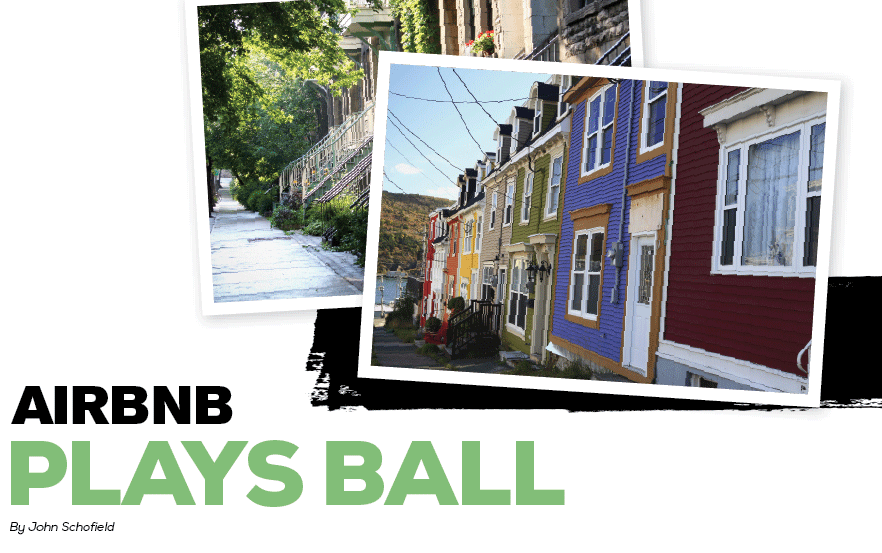For an increasingly athletic-looking Airbnb, Inc., it was a game-winning goal, a home run and a slam dunk rolled into one. In March, the San Francisco-based online home rental marketplace announced an official contract with the 2016 Olympic Games in Rio de Janeiro, promising to provide at least 20,000 rooms during the event.
Now the rapidly expanding firm has its sights set on the sports tourism market in Canada and other countries. Last May, it served as the title sponsor for the 2015 Airbnb Brooklyn Half Marathon.
“The sports tourism market is important for Airbnb, especially as we head into an Olympic year,” says Aaron Zifkin, Airbnb’s country manager for Canada. As the official alternative accommodation services supplier for Rio, “we’re optimistic we’ll see substantial growth,” he adds.
Level playing field
Not everyone is thrilled about the news. Often likened to Uber, the controversial online transportation service, Airbnb was a hot topic of conversation at the Canadian Sport Tourism Alliance’s annual Sport Events Congress last spring.
“Clearly there are markets where Airbnb is having an effect—not a major effect, but an effect,” says Tony Pollard, president of the Ottawa-based Hotel Association of Canada. “At the end of the day, what we in the hotel business want, look for, and expect is that everyone will be treated on a level playing field.”
The Canadian hotel industry pays almost $6 billion a year in taxes to all levels of government and operates in a regulated environment to ensure high standards of health and safety, says Pollard. He argues that, right now, Airbnb can’t provide that and should face the same requirements. Amsterdam, London, Eng., and some U.S. cities have already enacted regulations governing Airbnb, and the province of Quebec is reportedly planning to do the same.
But Brendan St. Jacques, key account director, sport, for the InterContinental Hotels Group (IHG) in the U.S. and Canada, says Airbnb’s impact on his business so far has been negligible, and IHG has not taken any special steps to address competition from online rental services.
Accommodation providers of all stripes are actively targeting the amateur sports tourism market because it’s growing so
rapidly and is virtually recession-proof, says St. Jacques. Billeting, once a popular option for sport event organizers, is losing favour, he says, although it remains popular for some activities, such as local golf events.
An important niche
Ruth Harland, manager, conference services, at Western University in London, Ont., says services like Airbnb can’t create the “wonderful athletes’ village” environment that Western has provided for past sports events including the 2010 Special Olympics Canada Summer Games, and the 2006 Warrior World Lacrosse Championship.
Harland says some sports are more regulated than others, and governing bodies dictate where competing teams will stay. But for less regulated sports, where teams may be coming from a long distance and are looking to save money, Airbnb may fill an important niche. “There are benefits from a financial perspective,” she says. “I can see how that market could become even stronger.”
Airbnb’s Zifkin argues that hotels are experiencing their highest occupancy rates ever, and Airbnb is attracting travellers who may have avoided visiting a particular city without an option like Airbnb. “Large sporting events typically mean an influx of travellers to a region, which often creates accommodation problems for the host city,” he says. “Airbnb is creating a model to solve this problem and help cities expand their offering.”




